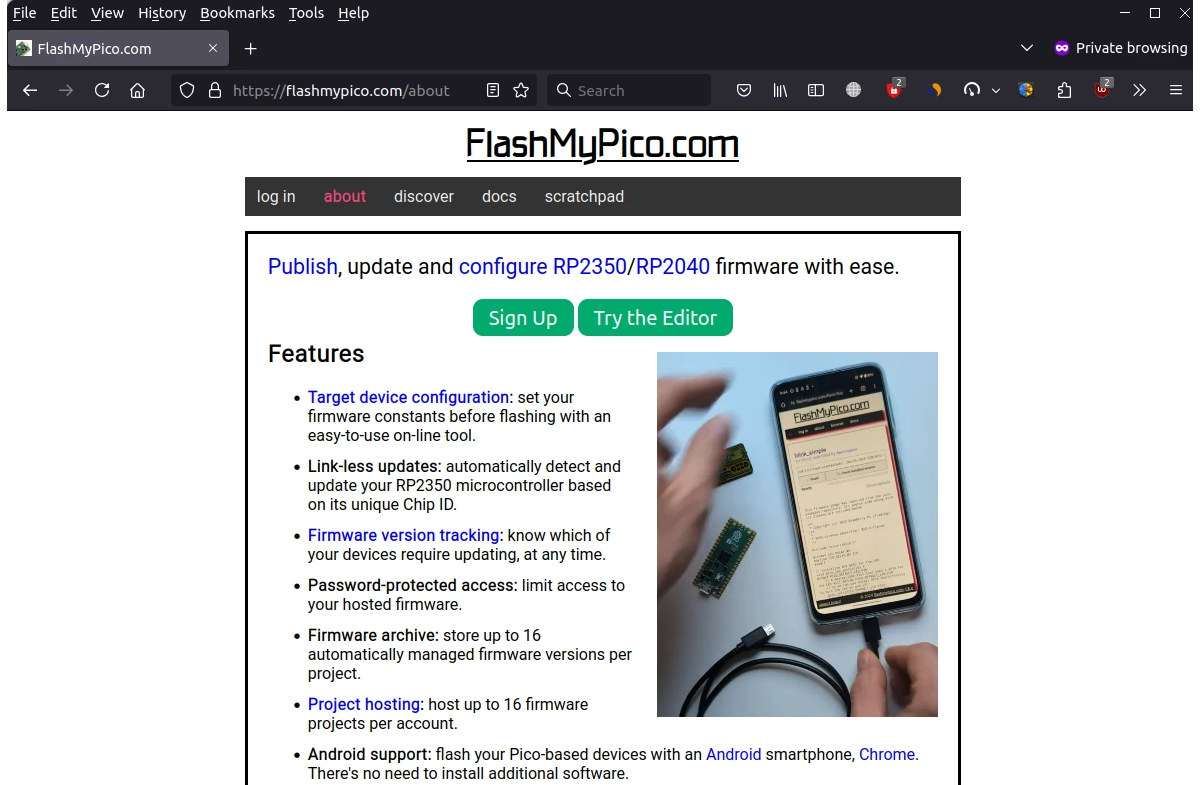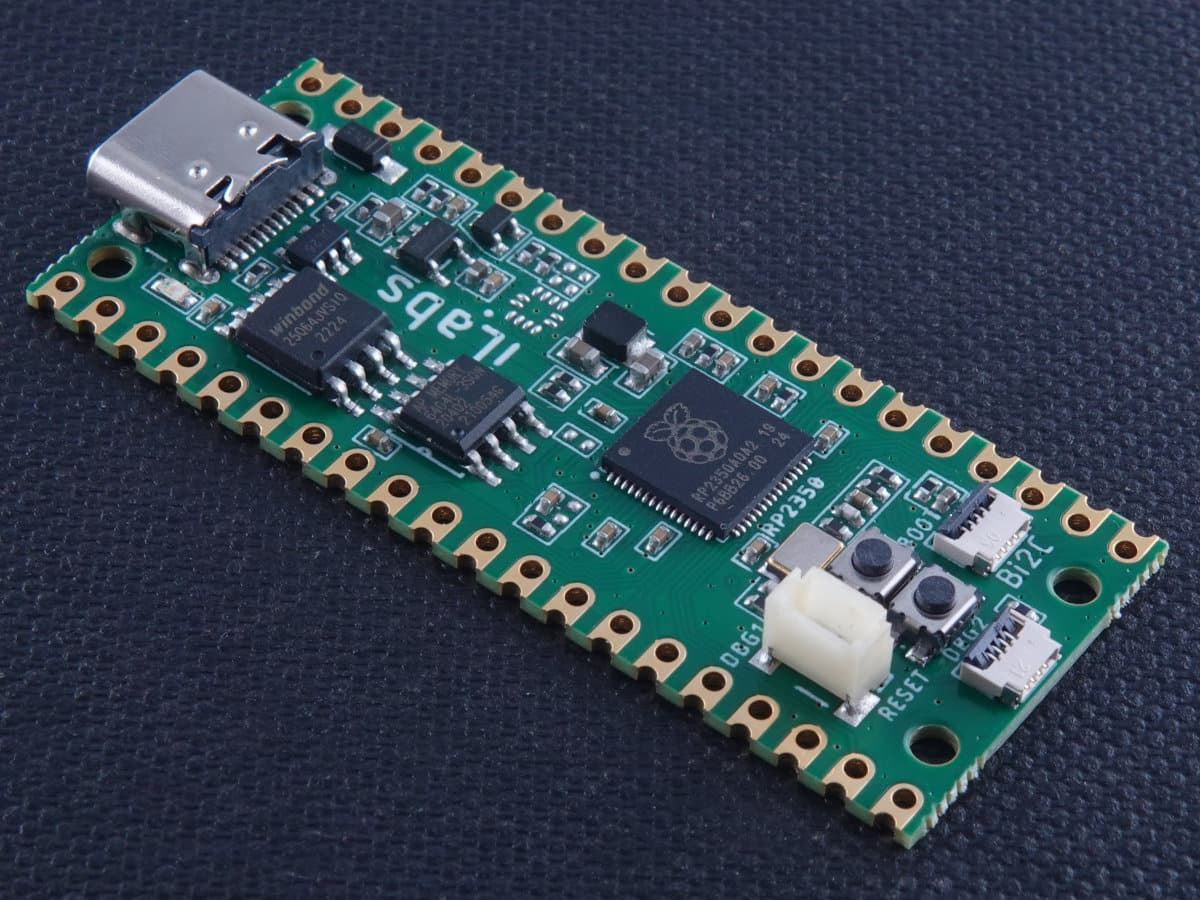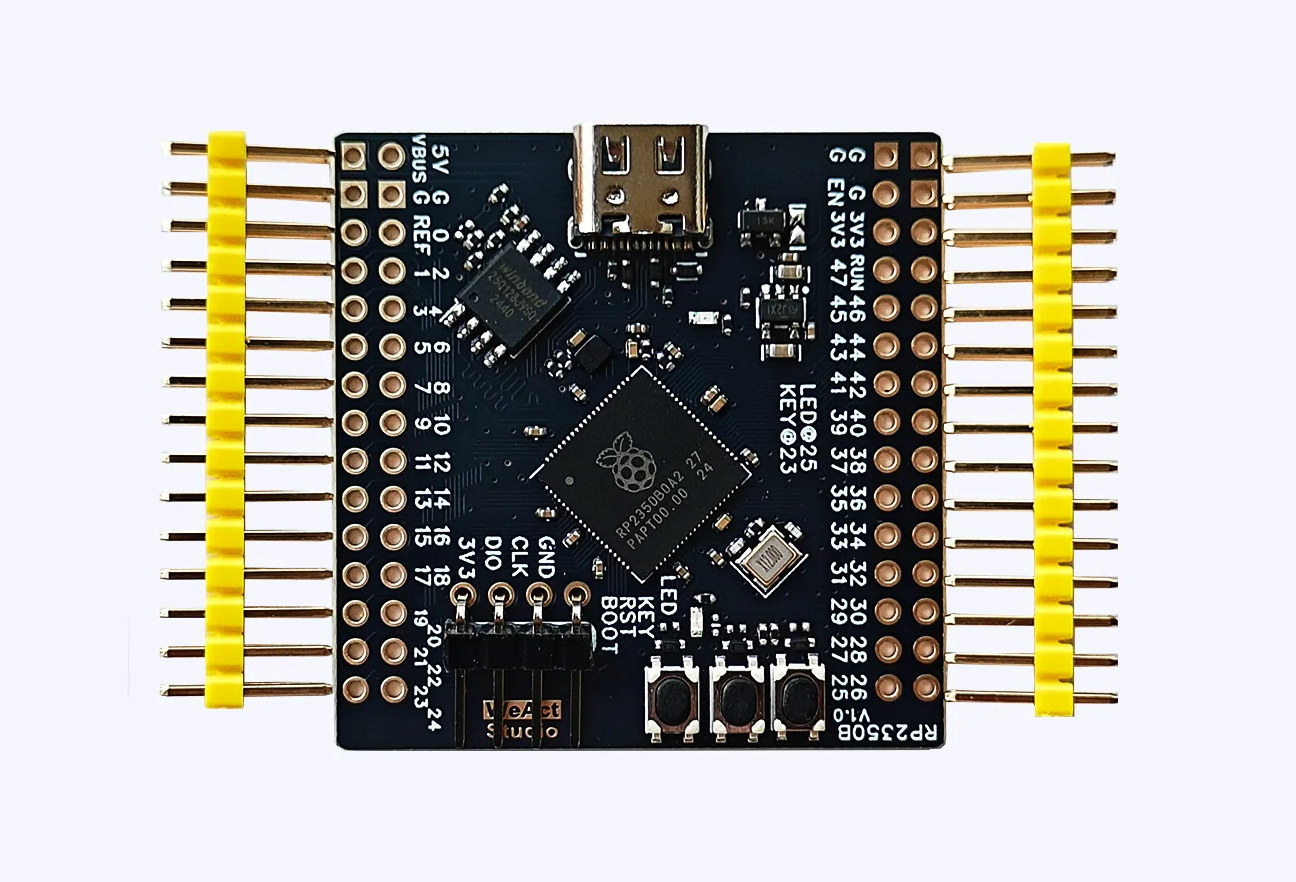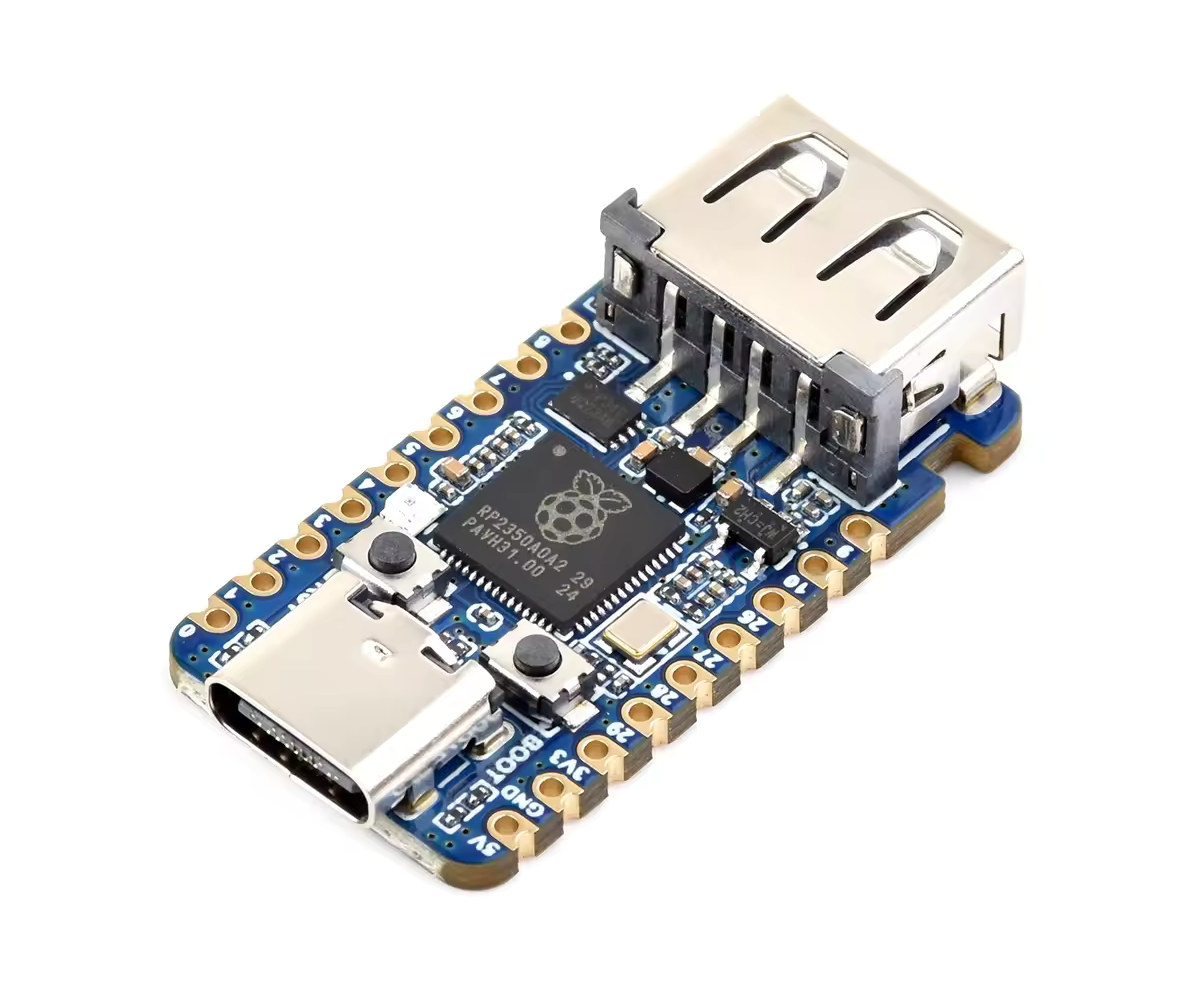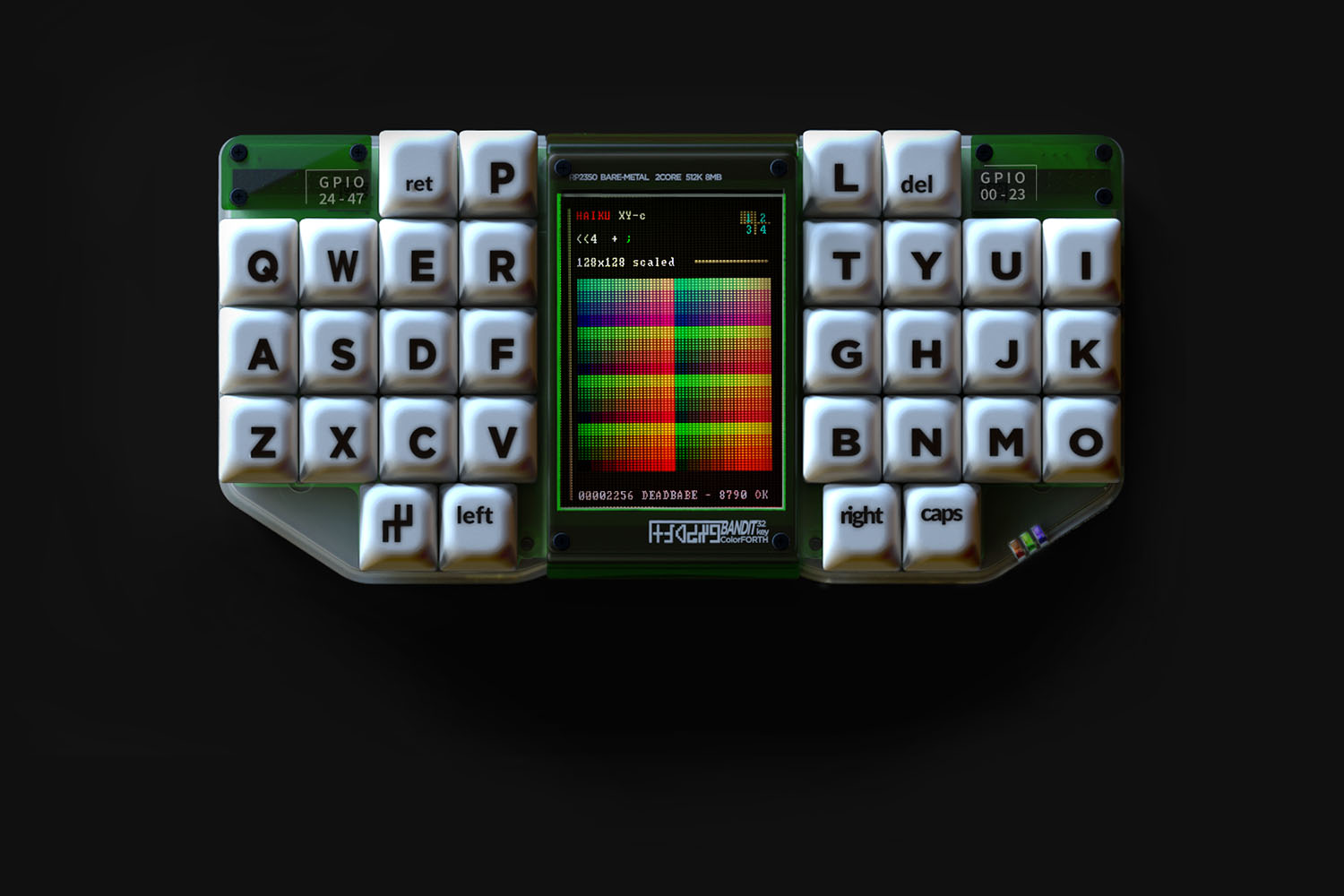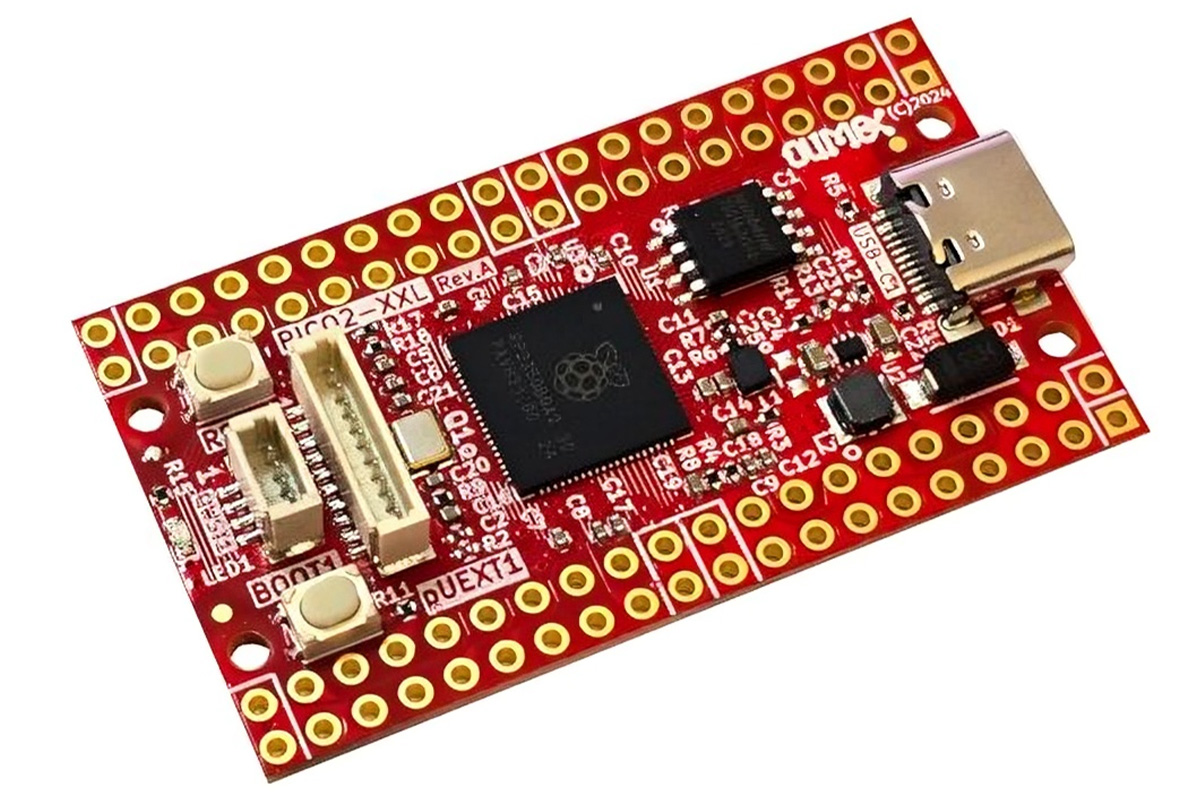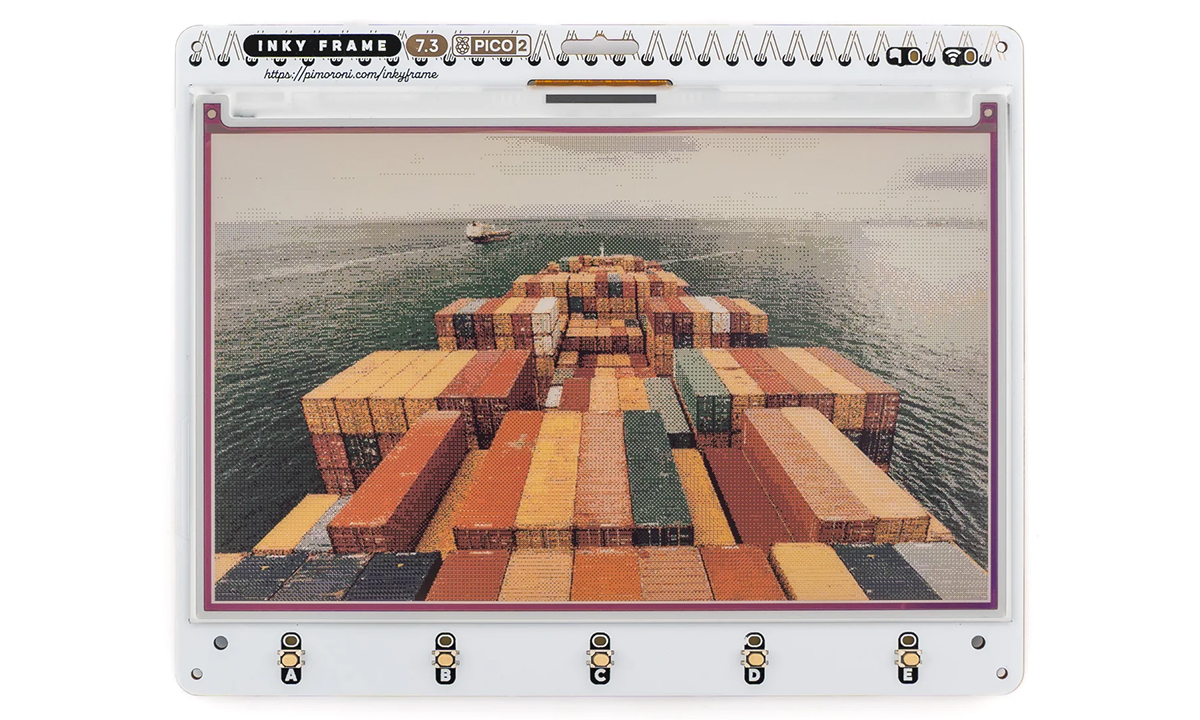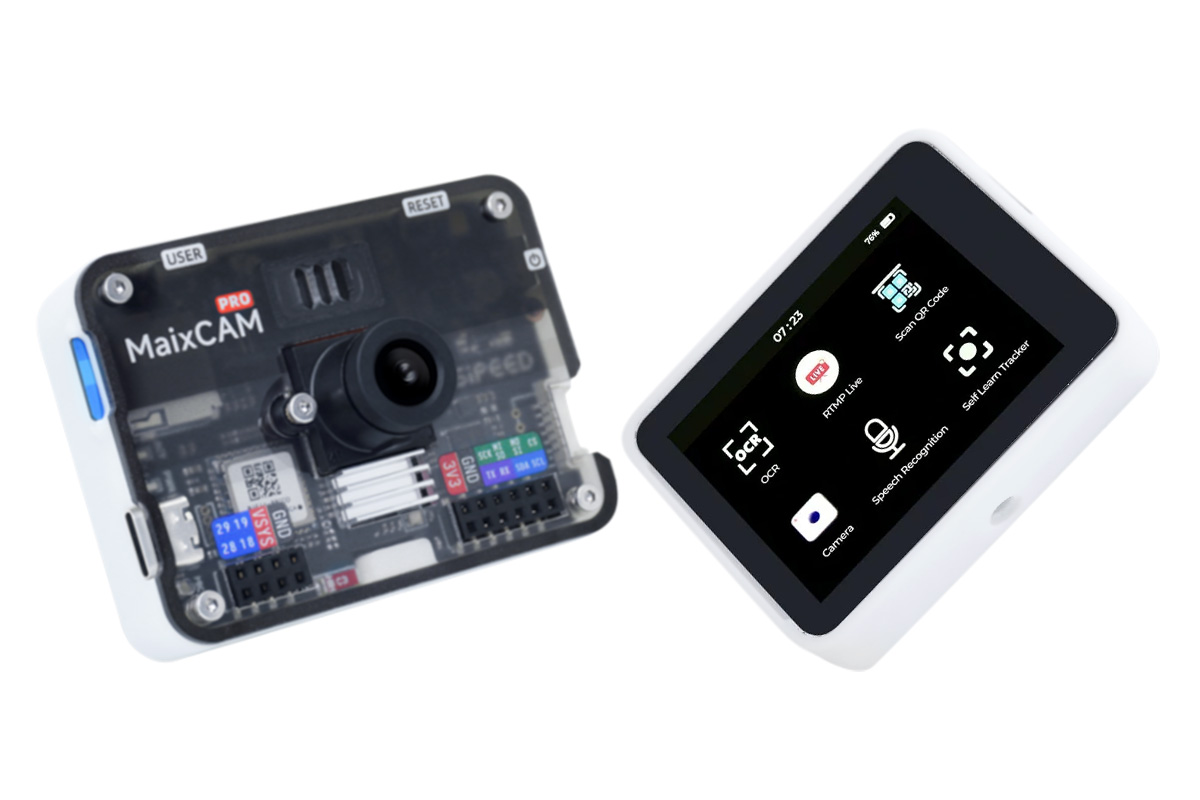FlashMyPico website allows you to write C code, build the firmware, and flash it to your Raspberry Pi Pico, Pico W, Pico 2, or Pico 2 W directly from a web browser instead of having to check out the code from GitHub, build it in a terminal, and then manually copy the resulting binary. I’ve given it a quick with a Raspberry Pi Pico 2 board. The first step is to head over to flashmypico.com from your computer or even an Android smartphone. You’ll need a web browser that supports WebUSB, so for example, Firefox is not an option, and I eventually had to use Google Chrome instead. There’s a detect device link on the bottom left, so I clicked on that first, and my Raspberry Pi Pico 2 was detected as “RP2350 Boot” after I put it in bootloader mode. But it just told me that my board is […]
CPico RP2350 is another Raspberry Pi Pico 2 alternative with USB-C, 8MB flash, 2MB PSRAM, BConnect I2C & debug ports
iLabs CPico RP2350 is a Raspberry Pi Pico 2 alternative with the same form factor, still based on the Raspberry Pi RP2350 microcontroller but equipped with a USB-C port, 8MB flash, 2MB PSRAM, a Reset button, and Bconnect I2C and debug ports. Apart from that, the CPico RP2350 retains the other features of the Raspberry Pi Pico 2 including the two 20-pin PGIO headers, and BOOT button. It joins other Raspberry Pi Pico 2 alternatives like the Waveshare RP2350-Plus adding battery support. CPico RP2350 specifications: SoC – Raspberry Pi RP2350 CPU Dual-core Arm Cortex-M33 @ 150 MHz with Arm Trustzone, Secure boot Dual-core RISC-V Hazard3 @ 150 MHz Up two cores can be used at any given time Memory – 520 KB on-chip SRAM Security 8KB of anti-fuse OTP for key storage Secure boot (Arm only) SHA-256 acceleration Hardware TRNG Fast glitch detectors Package – QFN-60 Memory – 2 MP […]
Tiny WeAct RP2350B Core Board exposes all 48 I/Os from the Raspberry Pi RP2350B microcontroller
WeAct RP2350B Core Board is a small (41.4×41.1mm) USB-C board exposing all 48 I/Os from the Raspberry Pi RP2350B Cortex-M33/RISC-V microcontroller through two 30-pin headers. It offers an alternative to the smaller Solder Party’s RP2350 Stamp XL (44.5 x 25.4 mm) with through and castellated holes and no USB-C port that’s better suited for soldering on a baseboard and to Olimex PICO2-XL and PICO2-XXL open-source hardware boards (50 x 28 mm). WeAct RP2350B Core Board specifications: Microcontroller – Raspberry Pi RP2350B MCU CPU – Dual-core Arm Cortex-M33 processor @ 150MHz Memory – 520KB internal RAM 8KB OTP Storage Package – QFN-80; 10×10 mm Storage 16MB QSPI flash Footprint for a second QSPI FLASH/PSRAM on the bottom side I/Os – All 48x GPIOs broken out via 2x 30-pin headers 2x UART, 2x SPI, 2x I2C 24x PWM 8x ADC 12x PIO state machines HSTX peripheral 5V, 3.3V, VREF, and GND Debugging […]
RP2350-USB-A – A Raspberry Pi RP2350 board with an extra USB Type-A port using a PIO implementation
Waveshare RP2350-USB-A is a small Raspberry Pi RP2350 board with a USB-C port for power and programming and a USB-A port to use the board as a USB device or host through a programmable IO (PIO) implementation. The board also features an RGB LED and two GPIO headers, which could make it useful for controlling GPIO/I2C/UART/SPI-connected devices when connected to a USB keypad or similar input. Alternatively, it could emulate a keyboard, mouse, or other USB device when connected to a host. RP2350-USB-A specifications: SoC – Raspberry Pi RP2350A MCU CPU Dual-core Arm Cortex-M33 @150MHz with Arm Trustzone Dual-core 32-bit Hazard3 RISC-V @ 150MHz Up to two cores can be used at the same time Memory – 520KB SRAM Storage – 2MB SPI flash for firmware USB USB Type-A port connected to GPIO12, GPIO13, 5V, and GND USB 1.1 Type-C port for power and programming Expansion – 2x 9-pin 2.54mm […]
BANDIT PC32 standalone ColorForth keyboard computer is powered by the Raspberry Pi RP2350 microcontroller
BANDIT PC32 is a Raspberry Pi RP2350-powered keyboard computer that runs a graphically-oriented version of the ColorForth programming environment. The BANDIT PC32 is primarily aimed at on-the-go use for programming video games. The custom, 32-key split keyboard takes up most of the build, with a 3.2-inch 320 x 240 capacitive display in the center. It also features an HDMI port for connecting a larger external display. The 48-pin GPIO is divided into two female headers and can be used to interface with other devices directly. This is the second version of the Bandit standalone computer, building on an early prototype based on the RP2040 microcontroller. We have seen several interesting RP2350-based products like the Inky Frame 7.3”, 4D Systems display modules, and Jumperless V5 programmable breadboard. However, this is the first RP2350 standalone computer we have come across. It shares some similarities with the ESP32 Rainbow. BANDIT PC32 ColorForth specifications: […]
Open hardware RP2350B boards offer up to 16MB flash, 8MB PSRAM, microSD card slot, 48x GPIOs
Olimex has recently released the PICO2-XL and PICO2-XXL open-source hardware RP2350B development boards with up to 16MB flash, 8MB PSRAM, 48 GPIOs, a microSD card slot, and more. The main difference between the two boards is that the PICO2-XL includes 2MB of external QSPI Flash and a compact flat-bottom design, making it ideal for simpler, space-constrained projects. In contrast, the PICO2-XXL offers 16MB of QSPI Flash, 8MB of PSRAM, and a microSD card slot for expanded storage and performance, catering to more demanding applications like IoT and edge computing. Olimex PICO2-XL and PICO2-XXL specifications SoC – Raspberry Pi RP2350B MCU CPU Dual-core Arm Cortex-M33 @150MHz with Arm Trustzone Dual-core 32-bit Hazard3 RISC-V @ 150MHz Up to two cores can be used at the same time Memory – 520KB SRAM 8kB OTP storage Security – Secure boot Package – QFN-80; 10×10 mm Memory – 8MB PSRAM (PICO2-XXL only) Storage PICO2-XL – […]
Inky Frame 7.3″ is a 7-color ePaper display powered by a Raspberry Pi Pico 2 W
The Inky Frame 7.3″ is a Pico 2 W ePaper display featuring a 7.3-inch E Ink screen with 800 x 480 resolution and 7-color support. Other features include five LED-equipped buttons, two Qwiic/STEMMA QT connectors, a microSD card slot, and a battery connector with power-saving functionality. This Pico 2 W ePaper display is ideal for low-power applications such as home automation dashboards, sensor data visualization, and static image displays. E Ink technology ensures energy efficiency by consuming power only during screen refreshes while retaining images when unpowered. Flexible mounting options and included metal legs make it suitable for various setups. Previously, we covered the Waveshare 4-inch Spectra, a six-color ePaper display, along with other modules like the Inkycal v3, Inkplate 4, EnkPi, Inkplate 2, and more. Check them out if you’re interested in exploring these products. The Inky Frame 7.3″ specifications: Wireless module – Raspberry Pi Pico 2 W SoC […]
Sipeed’s MaixCAM-Pro AI camera devkit adds 2.4-inch LCD, 1W speaker, PMOD interface on top of WiFi 6 and BLE 5.4
Sipeed has recently released the MaixCAM-Pro AI camera devkit built around the SOPHGO SG2002 RISC-V (and Arm, and 8051) SoC which also features a 1 TOPS NPU for AI tasks. The module includes a 2.4-inch color touchscreen and supports up to a 5MP camera module. Other features include WiFi 6, BLE 5.4, optional Ethernet, built-in audio capabilities, a PMOD interface, GPIOs, and more. Additionally, it features an IMU, RTC chip, and AXP2101 power management for enhanced performance. The module is designed for AI vision, IoT, multimedia, and real-time processing applications. Just a few months back, Sipeed introduced the MaixCAM AI camera devkit, which is also built around the SOPHGO SG2002 RISC-V SoC. The new module improves on the MaixCAM with a redesigned PCB, upgraded casing, and various new features including a 2.4-inch IPS touchscreen (640×480), a 1W speaker, expanded IO interfaces, a power button, and an illumination LED. It also […]


